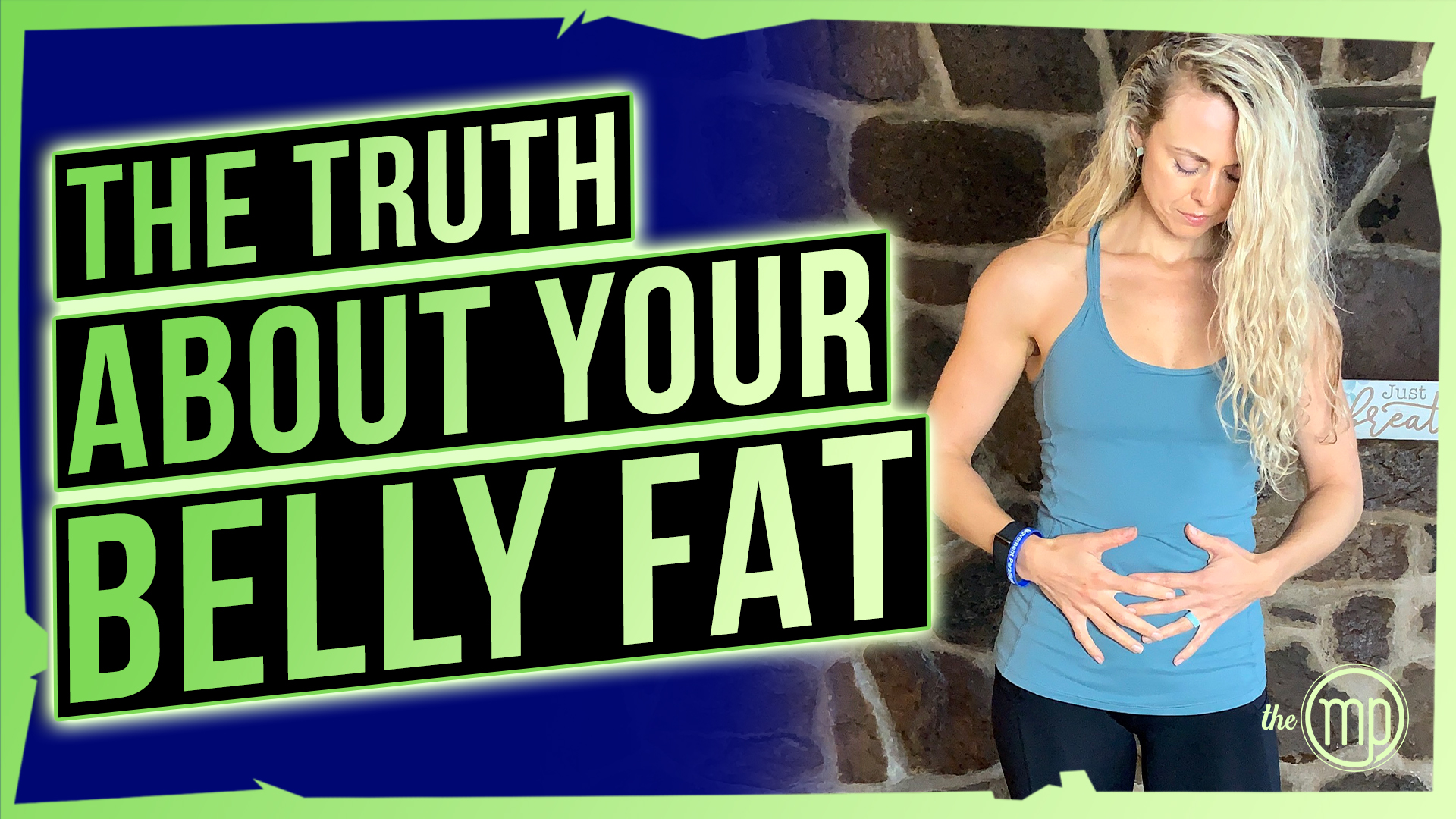Do you have belly fat that you just cannot seem to get rid of? You’ve tried different nutrition plans and exercise programs, and it just won’t budge. You also know that there is a lot of risk of having abdominal weight gain, but you’re just not sure what to do about it.
Although you may not want to hear this, abdominal weight gain is linked to high cortisol levels, which is one of our key stress hormones that is released during the hypothalamic-pituitary-adrenal (HPA) axis, our stress pathway. When we have chronic stress, we have chronic cortisol release, among other stress hormones that are linked to abdominal weight gain, obesity, and increased visceral and subcutaneous fat.
Rather watch or listen?
How many types of fat do we have?
There are two types of fat that we’ll see in the abdominal region, one of which is subcutaneous fat, and the second is visceral fat.
Subcutaneous fat produces helpful hormones, one of which is leptin which suppresses your appetite and helps to burn fat. Two is adiponectin which helps regulate fats and sugars. So, if there’s any increased abdominal fat, then this will impact the production and function of these hormones. The visceral fat will be found around the liver, intestines, other organs, and even underneath the abdominal wall.
An interesting thing about visceral fat is that the more visceral fat you have, the harder and thicker it becomes. It becomes denser, so that’s when you may feel that your stomach feels hard and not as elastic as it once did. This, of course, can increase inches to your waistline.
In addition to that, you also have increased cytokines in your visceral fat. There are more cytokines in the visceral fat than there are in subcutaneous fat. These proteins are linked to low-level inflammation and inflammation is linked to many chronic diseases. Lastly, it also releases more retinol-binding protein, which will contribute to more insulin resistance.
Based on research, having increased abdominal fat is linked to colorectal cancer, dementia, asthma, cancer, and cardiovascular disease. Just remember that abdominal weight gain does not discriminate among genders. So, men and women both can get abdominal weight gain. Women are more susceptible to it after they’ve gone through menopause because their estrogen levels have decreased, which is linked to high cortisol levels over time and chronic activation of the stress pathway.
Now, what can you do about it?
1) Stress management
This could include practicing mindfulness, meditation, journaling, speaking to a counselor, and trying to be aware of your responses during your day-to-day actions of life. We cannot get rid of stress, but we can learn how to respond to our stressors more effectively. We can respond with clarity and creativity, rather than reacting. When we can begin to do this we can shift our nervous system into a state of more social engagement, safety, a grounded, mindful state rather than in a fight or flight or freeze state.
2) Anti-inflammatory diet
This can be very challenging for many people. The Standard American Diet (SAD) is filled with processed, high sugar, high-fat foods. Aim to have a diet low in sugar, processed foods, and try to eat more clean and natural whole foods.
3) Exercise
First, determine what level of exercise is appropriate for you. If you are in a state of chronic stress, then doing high-intensity interval training is not appropriate because that is also a stressor that can put you into a state of complete overload. Identify the appropriate level of exercise, be consistent with your exercise, and remember that exercise is not the same as movement.
We exercise 30 minutes a day, but we should be moving all day long. We should be consistently increasing our movement levels, which means sitting for no more than 20 to 30 minutes at a time before we get up and move our bodies. Our bodies are meant to move, they crave movement, and if we don’t do it, we lose it.
4) Sleep
Sleep is more important than nutrition and exercise combined. Aim for seven to nine hours a night. But, It’s not only about how much sleep you’re getting, but it’s about the quality of sleep you’re getting. How much REM and deep sleep are you getting? Are you giving yourself enough time to down-regulate your nervous system before you go to sleep, are you using your phone up late at night or watching TV and stimulating your nervous system as opposed to calming it down and preparing for a restoration process?
If you are chronically sleep-deprived, this will increase the stress response in your body and contribute to weight gain, specifically around the mid-section.
Good luck in addressing your abdominal weight gain, i.e. stress belly.
Reach out for a 15-minute FREE discovery session to see how we can help you on your journey.
For more content, make sure to subscribe to our YouTube channel here.
Other things that may interest you:

